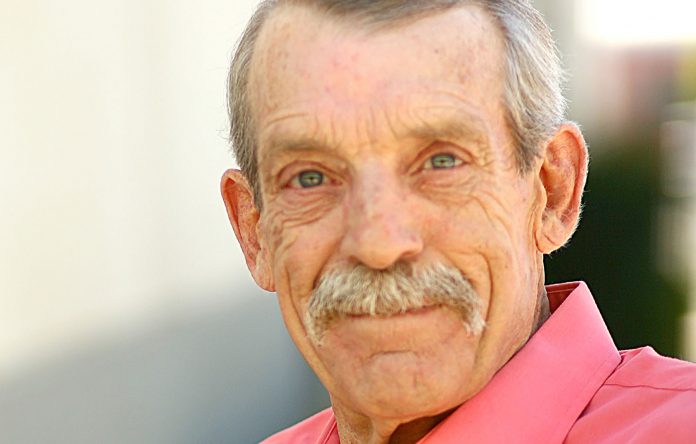I was reading about the origins of Christmas and the various ways the day is celebrated around the world. It is a day with a history that originally involved more than a few countries and belief systems. What we know today as Christmas has had over the centuries the influence of pagan holidays, regional practices, Christian history and non-sectarian observances.
Some of the early beginnings of what we now know as Christmas went from mass celebrations during a 12-day stretch of winter pagan rituals, Saturnalia it was called, where drunkenness, sexual activity and, in the end, sacrificial death was combined with the early Christian declaration that Dec. 25 was the date of the birth of their Savior, Jesus of Nazareth.
One of the main proponents of this birthdate, which has come under scrutiny for centuries yet still remains, was the only man deemed a saint in the 19th century, Nicholas. And that is how we come to have two main players in the game today, Jesus Christ and Santa Claus.
Of course there is much more to the story. The Nordic influence brought the tradition of the Christmas Tree, which was a symbol of newness via the Yule Log. The Yule Log, or Yule Tree, was a practice known also to the Germans and the Saxons (British) and in Scandinavia.
The log, sometimes a full tree, was brought into the house, with ceremony (in some cases the person handling the wood had to have clean hands) that placed one end of the log or tree into the fireplace with the remaining portion stretched across the floor. The log or tree then burned continuously for a 12-day period.
The person of Jesus has gone unchanged over the millennia, he is still considered by millions to be the Savior of humankind, the God-Man of the Christian belief system. While millions of people around the globe believe in the story of Jesus and revere him as their savior, he is not recognized by millions more of different religions.
But the person first associated with gift giving, St. Nicholas, has various incarnations and is widely recognized around the globe. He as had, and still has, numerous names: Papa, or Pape or Papai Noel, Babbo Natale, Father Christmas, and a dozen more from around the globe. One of the names by which we know this symbol of giving is a mixture of both the religious and the laic, the German word Christkind (Christ Child) gives us Kris Kringle.
But for most of us here in the United States who celebrate Christmas, we know him as Santa Claus, which comes from the Dutch pronunciation of St. Nicholas, Sinnterklaas.
I would like to take a quick look back a few years and share some memories of Christmas Pasts of my youthful days in Greenfield. It seems that back some 60 years ago there was, because the town was much smaller then, a wider involvement by the townspeople when it came to the Christmas season, or so it seems to me as I look back upon those days.
As a member of the Greenfield 4-H Club, I remember sitting on bales of hay atop a flat trailer as we all sang Christmas carols up and down the streets of the town. I remember the bags of goodies, usually an orange, a couple walnuts and a striped candy cane, which Santa Claus would toss to us from the stage of the Greenfield Theater; if you didn’t catch one tossed by the Jolly Elf, then one was given at the door when exiting, no one was left out.
I can still see some of the decorations people placed on their lawns and rooftops; driving around town on the nights leading up to the day was an annual ritual. Others of that time will remember their favorites, but for me what my neighbor Bob Sprugazzi offered every year was fantastic; one year a small train actually followed a track around the top of his roof. And for my mother it was a must that we drive by the Scettrini home on Sixth Street, where Ann always had such a beautiful tree; she was a real artist when it came to decorations.
After the demise of the local movie house, Santa Claus made an appearance somewhere in town, often riding atop the city’s old open-cab firetruck. There were two times, if memory serves, when he made his appearance in a helicopter, but for safety reasons did not land.
What the Man in the Red Suit did was hover over the vacant lot on the southeast corner of ECR and Oak Avenue, now the site of a bakery/restaurant and exercise business, and toss Styrofoam balls out of the helicopter to the masses of kids gathered below. On each ball was written a free gift: an ice cream cone from George’s Fountain, a squirt gun from McElmoyle’s Pharmacy, a pair of socks from Corda’s Greenfield Department Store.
That was the second time he did that; the first time was nearly a disaster when ping pong balls were used and the wind from the rotating chopper blades blew the balls downward with the velocity of a howitzer. Styrofoam proved safer.
Santa Claus also made the rounds of the elementary school. I recall as student body president in my eighth-grade year going through each classroom on campus placing a Christmas bag (again with the orange, nuts and candy cane) on each student’s desk with Santa right on my heels; he would come in one classroom just as I was exiting on my way to the next classroom.
It was years later that I found the Santa on the theater stage and the Santa at the school following me around the campus was one Rickola S.C. Wilson, my father. Must have been a good costume because I never had a clue.
Those are nice memories. I hope today’s youth will have the same, fond memories of Christmas.
Take care. Peace.













